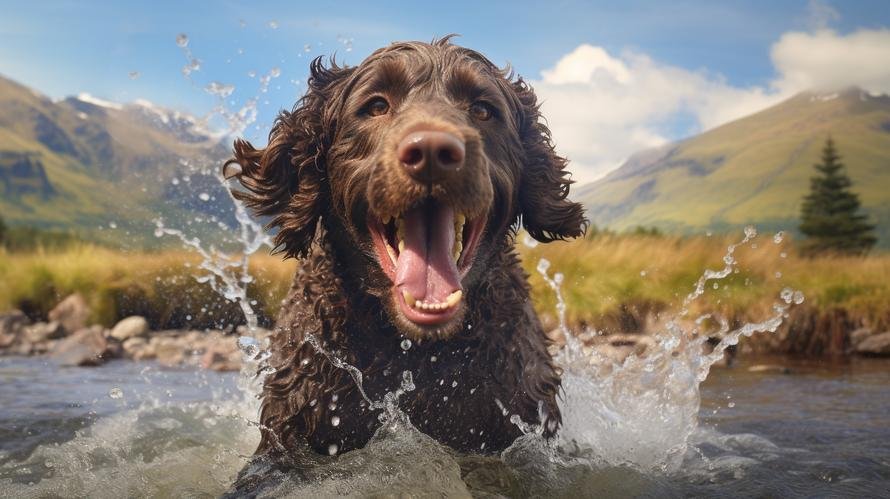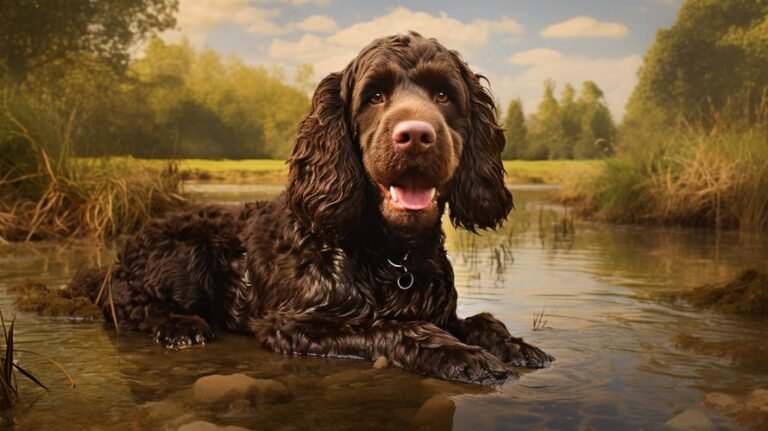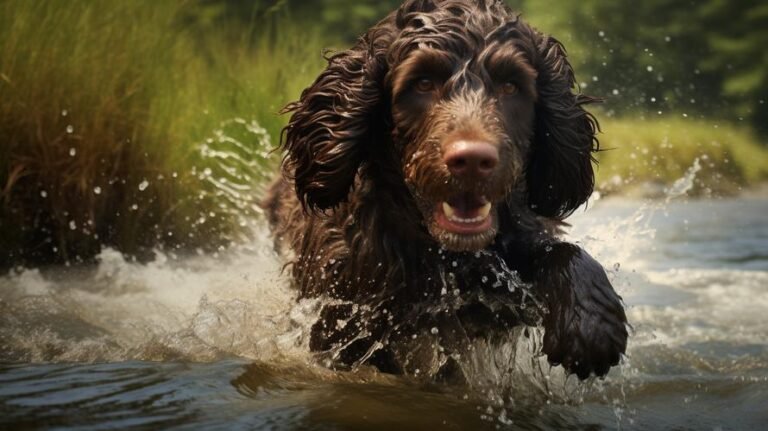Just imagine this: a large, inquisitive dog, full of energy, and with a long, curly, water-repellent coat that gives the impression of a cheery, four-legged sailor. That’s the Irish Water Spaniel for you – a breed of gundog originating from Ireland. These dogs are known for their playful yet brave nature and are often considered to be clowns of the spaniel family due to their great sense of humor. Yet, in some circles, the Irish Water Spaniel has been labeled a dangerous dog. So, let’s unravel this mystery.
Many people believe that big dogs are dangerous. But size isn’t everything. Behaviors of dogs mostly depend on how they are raised, trained, and treated. When it comes to the Irish Water Spaniel, the breed is known primarily for its intelligence, versatility, and loyalty. They can be protective, but they are not inherently dangerous.
You see, the Irish Water Spaniel is typically very friendly with family and people they know. They bond quickly with their human counterparts and even with other animals. However, they can be reserved or cautious with strangers. But isn’t that what we would want all our furry friends to do – to approach the unknown with caution?
Irish Water Spaniels are intelligent and quick learners, but they also have a stubborn streak, which if not managed correctly, can lead to behavioral problems. Early socialization and firm yet gentle training are keys to shaping your Irish Water Spaniel into a well-mannered family pet. They need to understand who’s in charge without feeling threatened or scared. Trust me, these dogs respond better to rewards and praise rather than harsh discipline.
It’s also worth mentioning that these dogs require ample physical and mental exercise. A bored or neglected Irish Water Spaniel can develop certain problematic behaviors such as excessive barking, chewing, and digging. So if you’re considering this breed, make sure you can fulfill their high-energy needs.
There might be instances of individual dogs that have previously demonstrated aggressive behaviors, but remember, individual dog behavior does not represent the entire breed. Each breed has its characteristics, but upbringing plays a crucial role in any dog’s behavior.
Now, let’s touch the aspect of children safety. Irish Water Spaniels make excellent companions for energetic, playful kids. However, despite their patience and playfulness, teaching children how to approach and interact with dogs is pivotal to prevent any unfortunate incidents. Supervision is always recommended during early interactions until both the furry friend and the child understand each other’s boundaries.
In certain regions, due to often misunderstood protective instincts, the Irish Water Spaniel has been wrongly stigmatized as a dangerous breed. This breed might bark at strangers and act reserved, but aggression is typically not in their nature. Irish Water Spaniels are often protective of their families, which means that they might act out if they perceive a threat – just like any other dog would.
If you’re considering adding an Irish Water Spaniel to your family or have already done so, here’s some useful advice: Begin their training early, be consistent, and always mix training with lots of playtime and rewards. Regular exercise and mental stimulation will keep them happy, healthy and well-behaved.
In conclusion, the Irish Water Spaniel is not a dangerous dog. They are intelligent, lively, and loving companions, making them great additions to active families. The supposed danger associated with these dogs is often a result of misunderstanding their behavior or not meeting their specific needs. With love, understanding, and effective training, Irish Water Spaniels can bring joy and laughter to your home, all while providing a sense of safety and companionship.
With patience and the right approach, you’ll find the Irish Water Spaniel to be a loyal, lovable, and wonderfully engaging addition to your family. After all, every dog has its day, and the Irish Water Spaniel deserves its day in the limelight for all the right reasons.
Remember, there are no ‘bad’ dogs, only ‘bad’ owners. So raise them with kindness, understand their needs, train them well, and you’ll have a friend for life.



